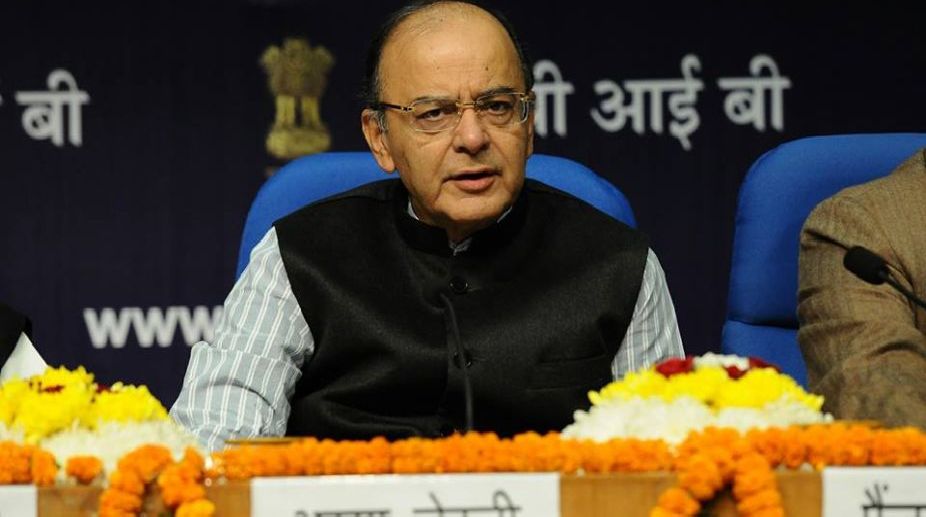Describing the currency deposited with banks following demonetisation as money that has lost its earlier "anonymity", Union Finance Minister Arun Jaitley on Sunday said such deposits do not automatically become legitimate, and can now be identified with the owner for taxation purposes.
"The fact that large quantum of high denominational currency has been deposited with the banks does not render this money to be legitimate cash," Jaitley wrote in a Facebook post titled "Demonetisation — A look back at the last two months".
Advertisement
"Black money does not change its colour merely because it is deposited in bank. On the contrary, it loses its anonymity and can now be identified with its owner," he said.
The Finance Minister said the Revenue Department would be entitled to tax this money.
"In any case, the amendment to the Income Tax Act itself provides that the said money, if voluntarily declared or if involuntarily detected, would be liable for differential and high rates of taxation and penalty," he said.
Jaitley's comments come after media reports earlier this week said that about 97 percent of the demonetised currency notes worth Rs 14.97 lakh crore have been deposited back as on December 30.
The Reserve Bank of India has clarified that such estimates may not be correct because the aggregating of accounting entries made at the various currency chests still requires to be reconciled with the actual cash balances in order to eliminate accounting errors and double counting.
The central bank is yet to release the figure of actual deposits of Rs 1,000 and Rs 500 demonetised currency notes made up to the deadline for depositing on December 30.
The government had earlier estimated that about Rs 15.4 lakh crore was to be taken out of the system by way of demonetisation.
Jaitley also said the large amount of cash with banks will strengthen the banking system, lead to lower interest rates and make more funds available for rural development and social welfare programmes.
Noting that there was no social unrest while implementing demonetisation, Jaitley said the opposition protests have been ineffective.
"The opposition disrupted a full Session of Parliament. Their exaggerated claims on the disruption of the economy have proved wrong," he said.
"It is a tragedy that a national party like the Congress decided to adopt a political position, opposing both technology, change and reforms. It sided with black money-friendly status quo," he added.
Meanwhile, the offcial advance estimates for the Indian economy's growth this fiscal were lowered on Friday even without the impact of demonetisation being taken into consideration.
The country's gross domestic product will grow at 7.1 per cent in 2016-17 compared with 7.6 per cent in 2015-16, according to the estimates of national income for 2016-17 released by the Central Statistics Office.
While announcing its monetary policy review last month, the Reserve Bank of India acknowledged the demonetisation factor and lowered their GVA growth estimates for the current fiscal to 7.1 per cent from the 7.6 per cent forecast earlier.
The Nikkei Purchase Managers' Index (PMI) survey released earlier this month showed that demonetisation provoked a downturn both in Indian manufacturing and services growth in December.
Besides, the output of India's eight infrastructure industries in November 2016 increased by 4.9 per cent, but fell sequentially as compared to the 6.6 per cent growth logged in October.
On November 8, Prime Minister Narendra Modi announced demonetisation of high-value notes, saying the move was aimed to eliminate black money, counterfeit currency and terror financing.











